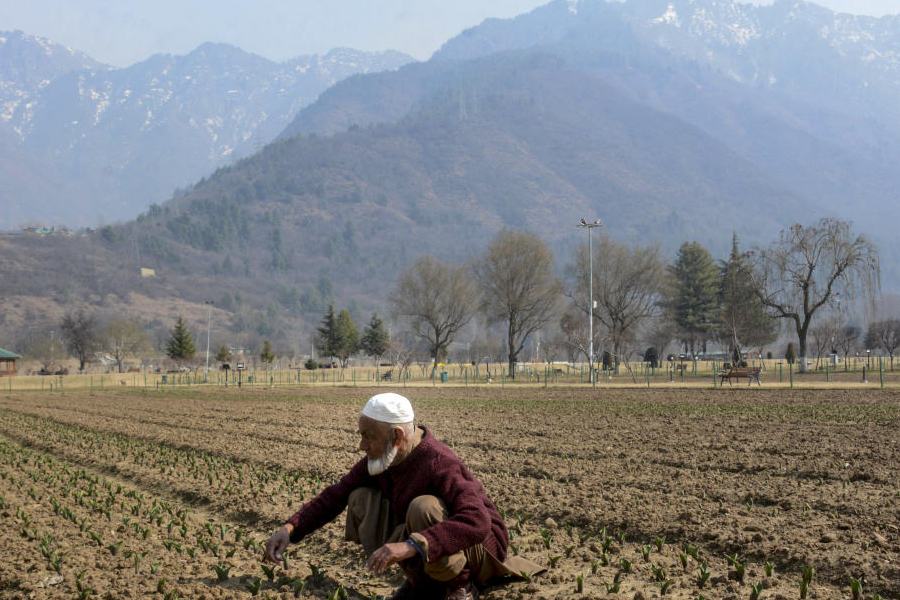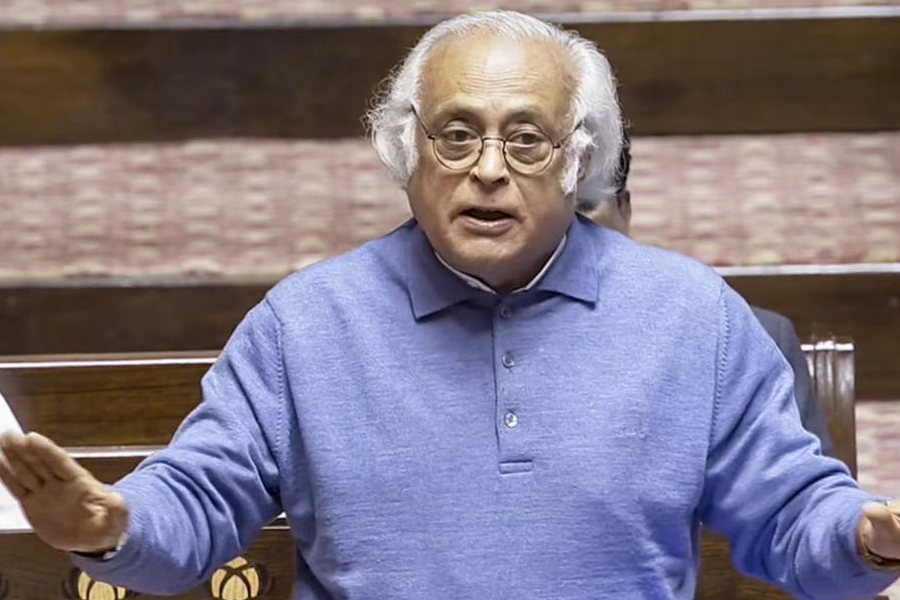 |
| The captured leopard in Dibrugarh on Thursday. Picture by Eastern Projections |
Dikom (Dibrugarh), Aug. 5: Prowling leopards have been a perennial problem for the tea gardens of Assam, but not for Dikom estate in Dibrugarh district of Upper Assam.
The big cats, which often venture into tea estates for a feast of cattle, chicken, duck or even a dog, mostly get a bloody reception. Even the cubs are not spared at times. Environmentalists allege that the man-leopard clashes occur because of the apathy and insensitivity of garden management. This, however, cannot be said for Dikom tea estate which organises awareness drives among workers to conserve leopards.
“We in Dikom have never taught our workers to be hostile towards leopards. As a result, we have been able to capture 12 leopards during the past four years. We organise internal awareness drives in our garden regularly and our workers have become quite sensitive towards leopards,” senior factory assistant manager, Bhaskar Phukon, a wildlife enthusiast, told The Telegraph. This morning, too, a male leopard, about 5 years old, was captured from the garden’s Sessa division with the help of forest department.
Phukon had proposed the awareness drive after joining the garden in 2004 and began it with active support from the then manager, Rajen Baruah. After Baruah’s transfer, he continued the work with support from the present manager, Samar Jyoti Chaliha, who joined the garden in March last year.
The management has formed a special unit under Phukon to tackle the issue. “Initially, it was very hard convincing the workers not to kill leopards. But after several rounds of orientation, both formal and informal, they have become more aware,” he said.
One of Dikom’s employees, Joydhan Pator, is considered an expert in capturing leopards. From selecting locations to setting up cages, to putting up the bait, he does it all with perfection. All the 12 leopards captured in the garden were done under Joydhan’s supervision and with the forest department’s help, Chaliha said.
The management has earmarked the areas in the garden where leopards are often seen as eco-friendly zones. They have put up signboards, warning people not to venture into these areas after sunset.
In recent years, Dikom had witnessed a rapid growth in the population of leopards. One of the reasons for this is the regular clearing of jungles by the Indian Air Force unit based in adjacent Nudwa. As the IAF clears the bushes, the leopards make the tea gardens their home. By nature, too, the leopards prefer to stay close to habitation as it ensures a steady supply of prey, Phukon said.
Dibrugarh divisional forest officer Anurag Singh complimented Dikom’s efforts and hoped that the other tea estates would follow its example. “The Dikom tea estate management has set an excellent example in terms of conservation of wildlife. It will definitely help the government-led conservation efforts,” he said.










